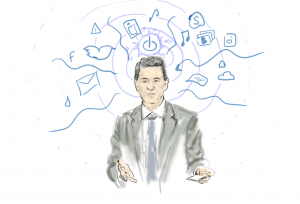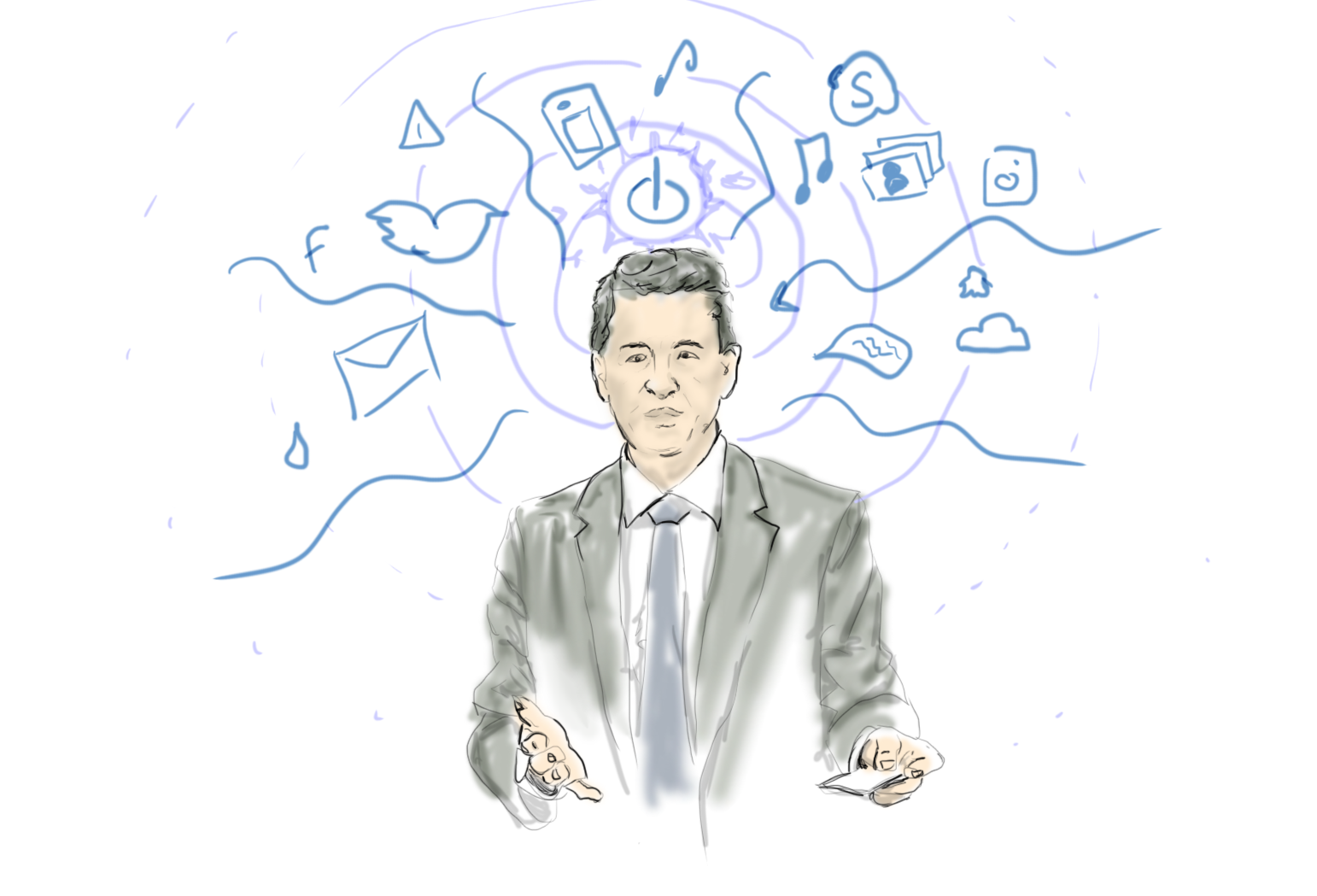This post is also available in Dutch.
What’s the first thing you do upon arriving at the office, after settling down behind your desk? If it’s ‘checking e-mail’ then Professor Levitin thinks you should make some changes…

Professor Daniel Levitin gives talk on ‘Information overload’: Avoid distractions! Image by Roselyne Chauvin (CC BY-RC)
Cognitive neuroscientist, musician, record producer and American Professor, Dr. Daniel Levitin gave a lecture at the Donders Institute about how we can be more productive in a world bombarding us with constant distractions. Think of your mobile phone vibrating on your desk, or the Facebook notifications popping up on your browser. These distractions come at a cost: switching our attention exhausts us. After a while we no longer get anything done.
Not only distractions are bad for your productivity, but multitasking is bad as well. Levitin even calls multitasking a myth: what we actually do when we think we’re multitasking, is rapidly switch between tasks. Again, cognitive exhaustion will be the result. In fact, research has shown that multitaskers get less work done than so-called ‘unitaskers’, and their work is judged as being less creative and of lesser quality.
Still, knowing that you shouldn’t shift your attention by switching so much, is easier said than done. Fortunately, Levitin provided some useful tips for those of us hoping to be a bit more productive.
1. Use ‘brain extenders’
Extending your brain to the environment sounds more like science fiction than it actually is. What Levitin actually means here, is to use our environment as a tool to lighten the burden we put on our memory. For example, if you have to remember to buy a carton of milk and batteries after work, to mail your aunt’s birthday card, and to pick up your dry-cleaning – this leaves little room in your memory to think about other more important things. Thus, by writing all your to-do’s down on a list, you will free up space in your brain and allow yourself more room to focus on your work.
2. Prioritize and list to-do’s
When you make a to-do list, do not only think in terms of what needs to be done, but rather what has the highest priority. Productive people get important things done, because by definition, they prioritize them. After crossing off top priorities from your to-do’s, you go home feeling free and energized, and subsequently find more enjoyment in your leisurely activities. In turn, this replenishes the energy you’ve burned up, and will make you more productive the following day at work!
3. You determine what you are working on
Now let’s get back to those e-mails. Why should you stop opening your e-mail first thing in the morning? Because, rather than following our own priorities, says Levitin, we now let others (those who send us e-mails) dictate how we often spend our most-productive morning hours. Even when we decide to deal with a particular e-mail at a later time, this decision still temporarily distracts us.
The solution? Inform others that you will check your e-mail only at specific times during the day. This will give you the peace of mind to not feel obliged to check and answer any incoming e-mails immediately. And in case of an emergency, although perhaps a bit old-school, you can always be reached by phone.
More information:
- Watch a similar lecture by Daniel Levitin here, or read his book: The organized mind, thinking straight in the age of information overload.
- Earl Miller’s lab: research on multitasking
Written by Johanna de Vos. Edited by Marpessa Rietbergen.
